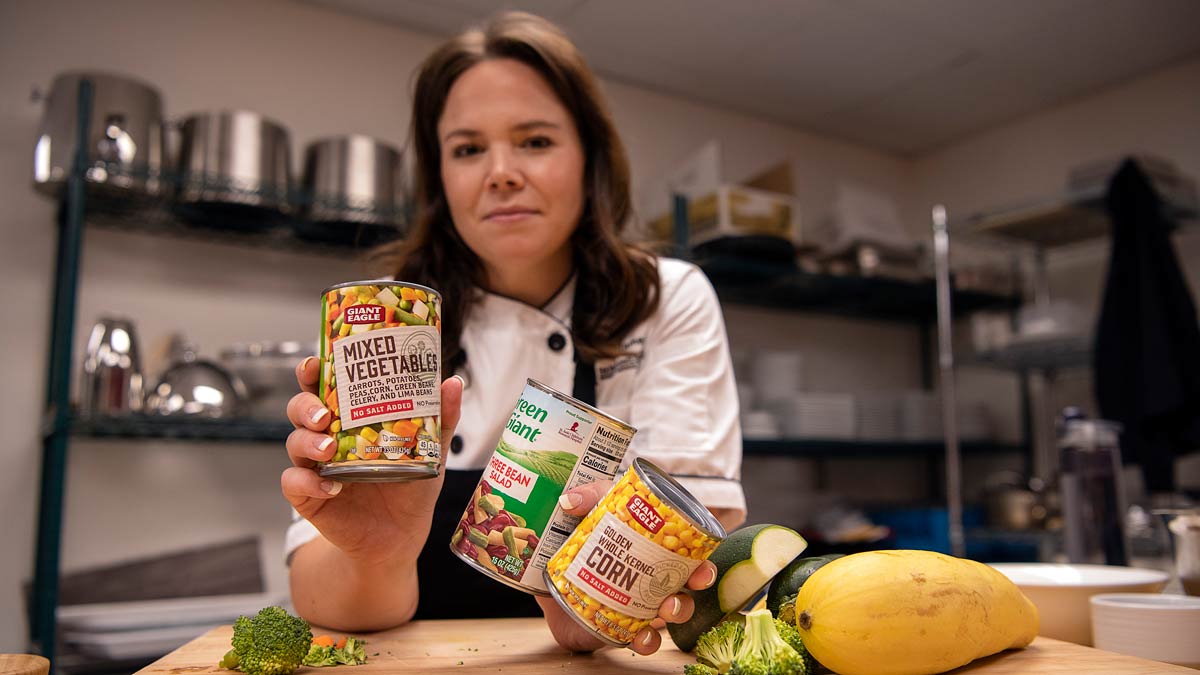Are canned foods good to eat?

Purchasing fresh fruits and vegetables has many benefits but isn’t always realistic for the average American. Price and accessibility can make it difficult to consume all fresh products, but there are still healthy alternatives.
Canned foods are typically cheaper than fresh and frozen foods, but that doesn’t mean they lack nutrients. These foods have a longer shelf life and can help a family be more financially responsible when purchasing food.
How does canning affect the food’s nutrition?
Canning can actually have some benefits. Before canning fruits and vegetables are picked at their peak of freshness. This ensures that every can has good quality nutrients. Specifically carbohydrates, fats, proteins and fat-soluble vitamins are preserved during the canning process. Some foods like tomatoes and corn release more antioxidants throughout the heating process. Canned beans have an increased amount of soluble fiber, which can support a healthy heart and cholesterol.
However, this isn’t true for all nutrients. Water soluble vitamins, such as vitamin B and C, can be destroyed when heated. For some fruits, like oranges and grapefruit, it may be better to purchase fresh than in the can.
How to pick the best canned foods?
Shelves are stocked with a variety of canned foods, but which are the best for you? When picking canned foods, first look for cans that are Bisphenol A (BPA) free. BPA has potential health complications, such as increasing risk of cancer and weight gain. Before purchasing canned goods it’s important to ensure there are no dents or dings. Both of these situations expose the food to air, leading to food-borne illnesses like botulism. Many canned goods have a seal on the lid which, if popped up, indicate contamination.
Choose canned foods that are low in sodium and contain no added sugar. Look for fruits that are in their own fruit juice and not syrups to avoid excess sugars. When choosing canned meats like tuna and chicken, be sure to avoid options containing oil, since this significantly increases calorie content.
Roy Gildersleeve is a registered dietitian at The Ohio State University Wexner Medical Center.




